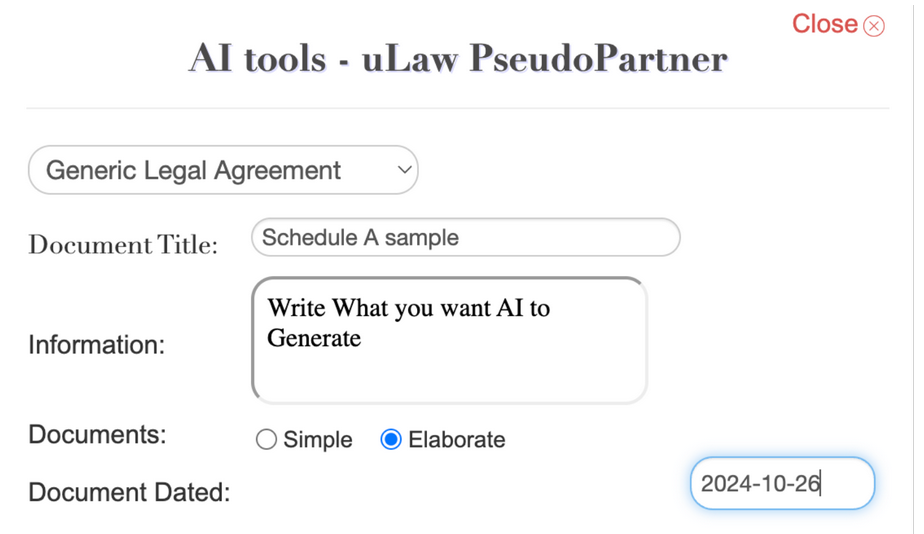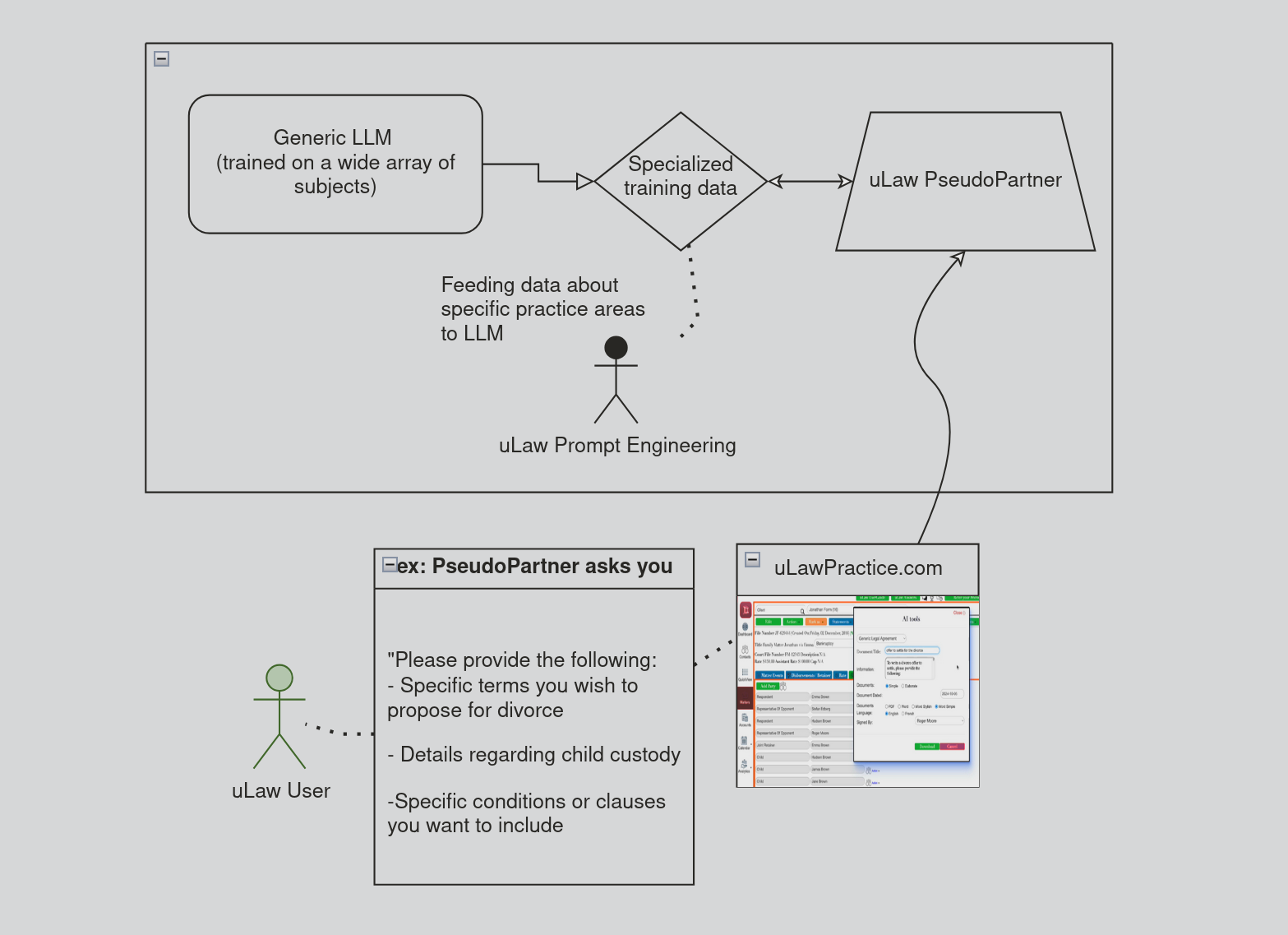uLaw PseudoPartner: unique AI for Canadian law firms

uLaw’s AI prompt engineering team is soliciting client requests to train AI models to better understand the minutiae of specific areas of Canadian law.
uLaw PseudoPartner is a custom AI model built into our existing cloud based practice management and legal accounting suite. This model not only generates documents, but it behaves as an actual pseudo-partner to your firm–one that understands the types of legal matters you’re working through.
For many years uLawPractice has operated as a digital legal assistant for Canadian legal firms, helping augment a firm’s ability to handle accounting and practice management. While this remains our top priority as always, users are frequently inquiring about new AI tool support. To complement this, uLaw has expanded its engineering team to take on this opportunity. Our vision is to enhance uLaw so that it not only performs as a digital legal assistant, but also as a virtual AI-powered firm partner with whom a practitioner can consort with.
When used, uLaw PseudoPartner will ask the user to provide certain criteria pertaining to the matter at hand. Whether its a specific type of letter or other document, the AI-model has been trained to understand what criteria needs collecting before it can begin drafting the document based on the type of legal matter being handled by your firm.

This custom AI model behaves a little bit like variations of AI models currently being worked on all over the world today. Many people may be aware of the variation in generic models provided by OpenAI, such as versions: 3.5, 4, 4o, o1-preview, and so on.
There are many custom models that sit on top of these generic models, after having been trained on certain niche areas. Custom training on top of generic training can make for a higher chance of returning adequate answers that make sense specific to what task the AI is trained to do. For example, other chat bots exist, such as Baidu’s “Ernie Bot” which is a LLM developed with the specific intent to excel at natural language processing in Chinese and other languages.
uLaw’s goal is simple with PseudoPartner: we train the model in the specific problem-space that Canadian law and paralegal firms find when tackling matters on behalf of their clients.
As in the example flowchart above, the AI will ask you key details depending on the type of Generic Legal Agreement you may be working on. The example we used, for a simple divorce settlement, queries the user on the details it needs before it can begin to generate the document appropriately.
Example screenshot of uLaw PseudoPartner with generic legal agreements:

Let's have a look at what Pseudopartner might ask a user. For this example, the details requested by pseudopartner are related to the specific terms of asset division, child custody, other special clauses, as well as timelines. Let's have a look:

Data Safety and Privacy
All uLaw data is stored in AES-encrypted databases on servers located in Canada.
When leveraging AI tooling within the software, our purpose-built AI-model has access to the data specific to your legal matters, but this access is not persisted in any data store, meaning that each 'session' is unique and only kept locally on the system for the duration of that session.
No uLaw data is used to train models, nor is it captured by either uLaw or another source.
